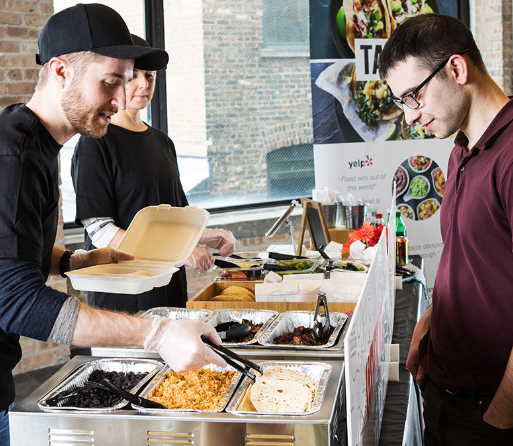Fooda, the specialized food program for workplaces, revamped its strategy to stay productive during the pandemic at a time when businesses were shuttered, staff furloughed, and entire workplaces transitioned to work-from-home. Rather than pivot clientele completely, Fooda maintained existing relationships while expanding into new key markets and leveraging the power of data.
Alex Groesbeck, president of Fooda, told SFA News Daily “the period between the middle of March and beginning of April in 2020, our sales dropped by over 90 percent. Our business was highly concentrated to white-collar offices in major metros, and that business all but vanished.”
Prior to the pandemic, Fooda began innovating the lunchtime grind for traditional office workplaces, offering solutions and flexibilities to businesses of all types and sizes, connecting them primarily with local restaurants and eateries. The food is prepared at the workplace with the option to skip the line and order ahead through a mobile app. Where the traditional cafeteria in a larger office complex had a handful of vendors offering mealtime options, the company saw an opportunity to bring local restaurants, the majority of which have only a single brick-and-mortar location, into the space. For smaller office buildings without a cafeteria space, Fooda worked with the business to provide on-premises solutions, in some cases operating out of a meeting room.
Once stay-at-home orders took effect, the company began exploring other market options, finding vulnerabilities in medical and military service offices, and distribution centers of companies like Amazon. The new clientele expanded to include blue-collar and essential workers.
These new populations still had to work around the clock, positively impacting Fooda’s business, but requiring innovation. The company was forced to adapt to 24-hour schedules, rather than the traditional nine-to-five. Fooda’s mobile ordering app was improved, and more reliable information regarding demand spikes and related information for food preparation was monitored and synthesized.
The company’s philosophy of creating a unique solution to satisfy business owners, customers, and restauranteurs proved successful: in a survey run by the company with data from 1,986 respondents, “27 percent of consumers state that they have visited a restaurant after learning about it through Fooda.” said Mary Doyle of First & Lasting, a PR company working with Fooda. “We have also heard this from the restaurant side, which has reported that coupons distributed at Fooda events are redeemed in store.”
Fooda capitalized on providing flexibility: allowing an employer to make food free or subsidize the cost of the meal.
Data science continued to frontier company operations once employees began returning to the office on hybrid schedules. Schedule optimization tools had to shift prediction features in interesting ways. Groesbeck noted that mid-day rainfall pre-pandemic indicated that more patrons would purchase meals from Fooda because they wouldn’t want to leave the office. After the pandemic, however, morning precipitation meant decreased patronage because flexible schedules allowed employees to work from home.
“While we believe work will forever be changed, the office will play a role in the future, and we wanted to make sure we can invest in tech and how we organize ourselves to be best suited to the dynamic future,” Groesbeck said.
Related: SFA's Spill & Dish Podcast: Bridging Two Cultures With Brooklyn Delhi’s Chitra Agrawal; Video: Di Bruno Bros.’ Mignucci on Joining the Family Business
Image: Fooda

